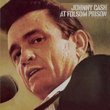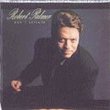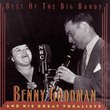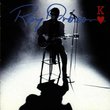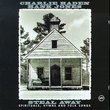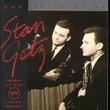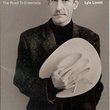| All Artists: Bob Wills and His Texas Playboys, Spade Cooley & His Orchestra, Hank Thompson, Patsy Montana & the Prairie Ramblers, Fort Worth Doughboys, Light Crust Doughboys, W. Lee O'Daniel & His Hillbilly Boys, Sons of the Pioneers, Buddy Jones, Various Artists Title: Doughboys Playboys & Cowboys: The Golden Years of Western Swing (Mini LP Sleeve) Members Wishing: 0 Total Copies: 0 Label: Proper Box UK Original Release Date: 1/1/2002 Re-Release Date: 12/14/1999 Album Type: Box set, Import Genres: Country, Alternative Rock, Jazz, Pop, R&B, Rock Styles: Cowboy, Roadhouse Country, Classic Country, Western Swing, Instrumental, Modern Postbebop, Smooth Jazz, Soul-Jazz & Boogaloo, Swing Jazz, Traditional Jazz & Ragtime, Bebop, Soul Number of Discs: 4 SwapaCD Credits: 4 UPCs: 604988990621, 5026643110062, 766485554024 |
Search - Bob Wills and His Texas Playboys, Spade Cooley & His Orchestra, Hank Thompson :: Doughboys Playboys & Cowboys: The Golden Years of Western Swing (Mini LP Sleeve)
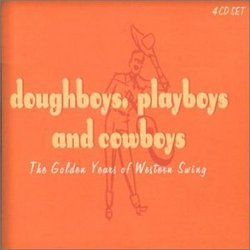 | Bob Wills and His Texas Playboys, Spade Cooley & His Orchestra, Hank Thompson Doughboys Playboys & Cowboys: The Golden Years of Western Swing (Mini LP Sleeve) Genres: Country, Alternative Rock, Jazz, Pop, R&B, Rock
Budget-priced four disc set with 99 tracks from the golden years of Western Swing, including cuts by Light Crust Doughboys, Bob Wills & His Texas Playboys, Bill Boyd & His Cowboy Ramblers, Tex Williams, Adolph Hofn... more » |
Larger Image |
CD DetailsSynopsis
Album Description Budget-priced four disc set with 99 tracks from the golden years of Western Swing, including cuts by Light Crust Doughboys, Bob Wills & His Texas Playboys, Bill Boyd & His Cowboy Ramblers, Tex Williams, Adolph Hofner, Hank Thompson and Cliff Bruners Texas Wanderers. Tracks include 'Pussy, Pussy, Pussy', 'Smoke, Smoke, Smoke'. 'Humpty Dumpty Heart' and 'Kangaroo Blues'. The tracks tell the story of this vibrant musical form that blended jazz with string bands, took in pop music & the blues, and pioneered amplification. Beautifully packaged, each disc also includes an illustrated booklet with a discography, photos and extensive liner notes. Each disc comes in a separate standard jewel case & together they are coralled up in a colorful & sturdy CD-sized slipcase box. 1999 release. Similarly Requested CDs
|
CD ReviewsWestern Swing is Western Folk Jazz no Hillbillies here! Tony Thomas | SUNNY ISLES BEACH, FL USA | 12/11/2003 (5 out of 5 stars) "This is a great panorama of Western Swing from its origins with Bob Wills and Milton Brown working together inthe Original Light Crust Dough Boys in the early 1930s to Tex Williams' great electric swing band from just after WWII. I've had these sides since Columbia issue an earlier version on LP more than 20 years ago. This music has little to do with what was considered Country music at the time or its emasculated mutant descendants in Nashville. This was not marketed as Country music. In fact in 1945 when Bob Wills, the acme of Western SWing, was the biggest grossing public attraction in the entertainment business, he had his sole invitation to the Grand Ole Opry, and then he almost walked out of there before he played a song because the hayseeds wouldn't let him bring on his drums and horns (not allowed onthe Opry until the late 1950s!). Western Swing comes from Jazz from the pop Jazz of the 20s and early 1930s, included people who went back and forth between bands like Wills and Spade Cooley to the white big bands (though Bob Wills once tried to hire a black alto player[against the law in Oklahoma] and of late Les Paul has taken to claiming he saw Charlie Christian sit in with the Playboys at Cains and there are pictures of the Playboys having drinks in Chicago with black Jazz greats like Ben Webster!!). Townsend Wills' biographer interviewed many Playboys and none of them felt they were part of Country, but part of Jazz.Basically it begins with people trying to play Jazz and Blues influenced music with the instruments of the old Southwestern Barn dance bands: guitar, fiddle, piano, adding in drums, and in many bands all the instruments of the Jazz orchestras. Very quickly Bobby Dunne added in the electric Hawaii, pedaless steel guitar and Leon McAuliffe who replaced him in the Doughboys and went with Wills was so well known that Bob Wills' introduction to him "Take it Away Leon" became a catch phrase in the whole country and beyond in the 1940s!At its most hyperbolic height (captured here in the Space Cooley Orchestra's Oklahoma Stomp, a recording anyone with a set of ears should treasure) you had 16 and 18 piece orchestras with full fiddle sections (in the early 1960s Wills even rounded his fiddles with a violist from the Lawrence Welch band!), complete reed sections, and more brass than they needed, and exotic additions like the Harpist who kicks off The Oklahoma Stomp. Further on than these recordings go, you would have players like Tiny Moore and Johnny Gimble who incorporated Bebop styles in their solos. Along the way, mostly during that war time period when recording bans and players going in and out of the army and different bands make following a little harder, the straight western swing style of combining a guitar, steel guitar, and sometimes electric mandolin trio alternating with fiddle choirs took hold as the paradigm for Western Swing. For some reason in most bands the horns seemed to disappear or roll down to just one after WWII. One thing about this music is that a very high level of musical technique and education became more and more part of the Western Swing environment. We know that European Jazmen like Stephan Grappelli followed the recordings of Hugh Farr who played with the sons of the pioneers and later Spade Cooley, and that Down Beat magazine described Eldon Shamblin out of Bob Wills' band as the best rythm guitar player in the country (slighting Freedie Green who even Eldon probably acknowledge was better). The other thing in contrast with much of what was being presented as country music contemporaneously is that this was not being presented as "old time music," craddling close to old conventions, but a new hot dangerous music, drawn as close as comfort would allow from Black sources, from the dangerous white swing bands, and from the part of down home music involved in drinking, dancing, cheating, and other things not permitted in the Baptist Southeast. WSM Grand Old Opry Stars toured the deep South playing in school auditoriums, church houses, and public squares. From the beginning Western swing belonged in barrooms, in dance halls, and other places where "the wine and liquor flow." Even Hank Williams wasn't allowed to use the word "beer" when he sang "My Bucket's got a hole in it" on the Opry. Meanwhile Western Swingers like Wills and Brown were singing about Cocaine and Opium, whiskey and beer back in the early 1930s. And Smokie Woods wasn't called smokie cause he liked Tobacco. LOL. In fact his tune here called "Everybody's Trukin," about what is done "up in Harlem" includes much use of a word that does sound like truckin', but does not contain an r or a T but does start with an F!! No this is not Nashville Country or even old time country music. This is Western guys and gals trying to be jazzy, bluesy, wild, whiskey soaked, drug high, hip to the secrets of Negroid nights of "truckin," playing their hearts out fast hot and heavy! Anyone with ears should own this collection!ps another wierd side note to this is on the great Hit\ "Smoke, Smoke, Smoke (That Cigarette)" both Tex Williams who sang it and Merle Travis who wrote it died of lung cancer!" I Hate Country Music But Love This Stuff R. F. Mojica | Staten Island, NY United States | 02/24/2003 (5 out of 5 stars) "This comes from a listener who hates what has become of country music and what passes for country music nowadays. It literally makes me sick, as do the "artists" who perform it, with their poofy hair, phony cowboy hats, phony twangy guitars and phony "country" accents. It is the worst music on the face of the earth--worse even than rap/hip hop (and that's saying something). The only thing as bad was that so-called "hair metal" from the 1980's, which is thankfully now a dead genre, while country music still lives on as the champ of awful musical garbage.I do like to listen to the old, REAL country music from early recordings. I don't know how genuine this is as "mountain music", or if it's considered real country, as it is a meshing of different styles of music. In a way it sounds a lot like Cajun music, without the accordions, and in English. Since they originated in close geographical proximity (Louisiana and Texas), I guess there was a lot of trading influences back and forth. But I really dig this set. There is so much at such a great price, most of it being top-notch entertainment, that anyone interested in American music owes it to themself to buy this set.The best recording in the set is Bob Wills's "Stay A Little Longer", but a many other songs are nearly as good. Highlights are the original recording of "Pistol Packing Mama" and "I Wanna Be A Cowboy's Sweetheart". "Buster's Crawdad Song" is a real gas, though if you're sensitive to politically incorrect lyrics, you shouldn't listen too closely to the words. "Who Walks In When I Walk Out", "Smoke Smoke Smoke (That Cigarette)" and the Light Crust Doughboy's hilarious, and very swingy "Pussy Pussy Pussy" are additional highlights, as are the countryfied versions of standard pop hits like "Who's Sorry Now", "There'll Be Some Changes Made" and "I'm Confessin"".Get this record throw that Tim McGraw and Garth brooks stuff in the incinerator." The Real Deal: It doesn't get any better, a real bargin too! David J. Batten | South of Mayberry, USA | 03/25/2002 (5 out of 5 stars) "A huge slice of 20th century Americana, this 4 cd collection is a bargin too. This set from the UK beats anything available in the USA for an all around review of western swing music. All the bases are covered, and in chronological sequence. You can hear the progression from a jug band and string band sounds of the 30's to where it blended into honky tonk in the 50's. If you're only familiar with Bob Wills & his Texas Playboys, this is a real treat. Nobody here beats him, but this provides a great context of where he came. You can hear the roots of honky tonk and rock and roll on these four sides, but this is great music that stands on its own. Recommended! All the people buying O Brother should pick this up, its the real deal!"
|

 Track Listings (25) - Disc #1
Track Listings (25) - Disc #1